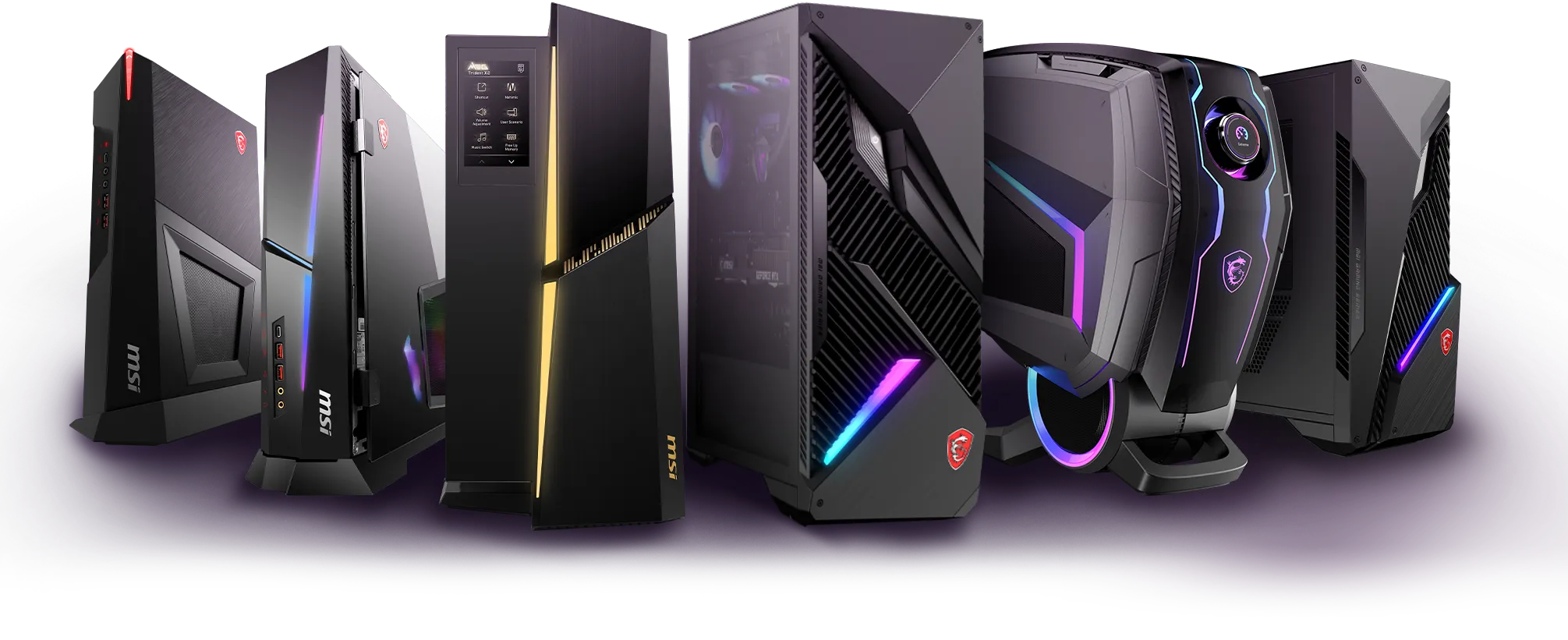Game Debate’s GPU Compare feature provides accurate and concise information on graphics card performance. With its user-friendly interface, users can quickly compare different GPUs and make informed decisions for their gaming needs.
In today’s rapidly advancing gaming industry, having a high-performing graphics card is crucial for optimal gameplay. Game Debate’s GPU Compare feature offers a hassle-free experience in finding the perfect GPU by providing relevant and succinct data on its performance. Whether you’re a casual gamer or a hardcore enthusiast, this tool ensures that you choose the right graphics card for your system without any guesswork.
With its SEO-friendly design, Game Debate’s GPU Compare enables users to quickly access the information they need without sifting through lengthy explanations. So, dive into the world of GPU comparison and make the most out of your gaming experience with Game Debate.

Credit: youtube.com
Factors To Consider
When purchasing a GPU, there are several important factors to consider to ensure you make the right choice. These factors can play a significant role in determining how well the GPU performs, how much power it consumes, and how it fits into your budget. So, let’s take a closer look at the key factors you need to consider before making your decision:
Price
Price is often a top consideration for most buyers. GPUs come in a wide range of prices, and it’s essential to choose one that fits your budget while also meeting your performance requirements. Keep in mind, though, that higher-priced GPUs typically offer better performance and more advanced features. It’s important to strike a balance between performance and cost, ensuring you’re getting the best value for your money.
Performance
Performance is a crucial factor when it comes to choosing a GPU. The performance of a GPU determines how smoothly your games will run and how well it handles resource-intensive tasks. Comparing the performance of different GPUs can be complex, but benchmarks can provide valuable insight into their capabilities. Look for benchmarks that measure frame rates, resolution, and settings across a variety of games to ensure your chosen GPU can handle your gaming needs.
Power Consumption
Power consumption might not be the first thing that comes to mind when selecting a GPU, but it’s an important factor to consider. GPUs can consume a significant amount of power, which can impact your electricity bills. Additionally, some GPUs might require a higher wattage power supply unit (PSU) to function properly. Be sure to check the power requirements of the GPU you’re interested in and ensure it’s compatible with your current PSU. Opting for a GPU with lower power consumption can help save energy and reduce your carbon footprint.
By considering the price, performance, and power consumption of a GPU, you can make an informed decision that meets your gaming needs while staying within your budget. Take the time to research and compare different GPUs to find the one that offers the best balance for your requirements.
Popular Gpu Brands
When it comes to gaming, having a powerful graphics processing unit (GPU) is essential for delivering high-quality visuals and smooth gameplay. There are two prominent GPU brands in the market that dominate the gaming landscape: Nvidia and AMD.
Nvidia
Nvidia is a well-established name in the gaming industry, known for its cutting-edge technology and performance-driven GPUs. With a wide range of options available, Nvidia caters to gamers of all budgets and preferences.
One of the standout features of Nvidia GPUs is their advanced ray tracing capabilities, which greatly enhance the realism and immersive experience of games. From the budget-friendly GTX series to the high-end RTX series, Nvidia delivers exceptional performance, making it a top choice among gamers.
Moreover, Nvidia’s software support and driver updates ensure that gamers have access to the latest features and optimizations for their GPUs. The GeForce Experience software further adds value by providing additional features like game optimization, recording, and streaming.
Amd
AMD, on the other hand, has made significant strides in recent years and has become a strong competitor to Nvidia. With their Radeon line of GPUs, they offer a diverse range of options to cater to different gaming needs.
AMD GPUs are known for their competitive pricing, providing great value for gamers on a budget. They also excel in areas such as superior power efficiency and multi-threaded applications performance.
AMD’s recent release of the RDNA architecture has further boosted their performance and efficiency, delivering a fantastic gaming experience. Additionally, with features like Radeon Anti-Lag and Radeon Image Sharpening, AMD ensures that gamers can enjoy high-quality visuals and reduced input lag.
In conclusion, both Nvidia and AMD offer excellent GPUs that bring incredible gaming experiences to players. Whether you choose the cutting-edge technology of Nvidia or the value-driven options from AMD, you can’t go wrong with either brand.
Key Features For Gaming
Compare the key features of different GPUs on Game Debate to enhance your gaming experience. Analyze and choose the best GPU for seamless gameplay and stunning graphics.
Gaming enthusiasts know that having the right GPU (Graphics Processing Unit) is essential for an exceptional gaming experience. When it comes to selecting a GPU, there are a few key features that you should consider to ensure optimal performance. These features include clock speed, memory, and architecture.
Clock Speed
The clock speed of a GPU measures the number of cycles it can perform per second. This directly affects the speed and efficiency at which the GPU processes data. A higher clock speed means faster processing, resulting in smoother gameplay and better graphics rendering. When comparing GPUs, look for higher clock speeds to ensure a lag-free and immersive gaming experience.
Memory
The memory of a GPU plays a crucial role in handling the vast amounts of data required for gaming. It affects the GPU’s ability to load and store game textures, rendering them quickly and efficiently. More memory allows for smoother and more detailed graphics, reducing lag and enhancing overall gameplay. When choosing a GPU, prioritize models with higher memory capacities to maximize your gaming performance.
Architecture
The architecture of a GPU determines its overall design and functionality. Different GPU architectures have unique features and capabilities that can significantly impact gaming performance. Newer architectures often incorporate advancements, such as improved energy efficiency and enhanced graphical capabilities. When comparing GPUs, consider opting for the latest architecture to take advantage of the latest technological advancements and ensure the best gaming experience possible.

Credit: www.game-debate.com
Benchmarking Tools
Benchmarking Tools are essential for gamers and PC enthusiasts who want to gauge the performance of their Graphics Processing Units (GPUs) and ensure they are getting the most out of their gaming experience. With the plethora of options available, it can be overwhelming to choose the right benchmarking tool. In this article, we will explore two popular benchmarking tools – 3DMark and UserBenchmark.
3dmark
3DMark is arguably one of the most well-known benchmarking tools in the gaming community. Developed by UL, this tool allows users to measure the graphics and computational performance of their GPUs.
Key Features of 3DMark:
- Wide Range of Tests: 3DMark offers a variety of tests that cater to different types of users, including gamers, overclockers, and system builders. Whether you want to assess the performance of your GPU under heavy gaming loads or simulate extreme scenarios, 3DMark has got you covered.
- User-Friendly Interface: The user interface of 3DMark is intuitive and easy to navigate, making it accessible for both beginners and advanced users. With just a few clicks, you can run tests and obtain detailed results.
- Comparative Analysis: 3DMark allows users to compare their GPU performance with others in the community, providing valuable insights into how their gaming rig stacks up against the competition. This feature can help users identify bottlenecks and make informed decisions on hardware upgrades.
Userbenchmark
UserBenchmark is another popular benchmarking tool that offers a comprehensive assessment of your GPU’s performance. It focuses not only on gaming but also on other tasks such as desktop and workstation usage.
Key Features of UserBenchmark:
- Real-World Performance Testing: UserBenchmark assesses the real-world performance of your GPU by running a variety of tests that simulate everyday tasks. This ensures that you get an accurate representation of how your GPU performs in real-world scenarios.
- Simple and Fast: UserBenchmark prides itself on being a simple and fast benchmarking tool. With just a single click, you can initiate the test and receive detailed results within minutes.
- Extensive Database: UserBenchmark has an extensive database of user-submitted results, allowing you to compare your GPU’s performance with others. This feature gives you a comprehensive overview of how your GPU stacks up against similar hardware configurations.
When it comes to benchmarking tools for comparing GPUs, both 3DMark and UserBenchmark offer unique features that can help you evaluate and optimize your gaming rig. Whether you are a seasoned gamer or a PC enthusiast, these tools are indispensable for maximizing the performance of your GPU.

Credit: www.msi.com
Frequently Asked Questions Of Game Debate Gpu Compare
What Is Gpu Compare And How Does It Work?
GPU compare is a tool that allows users to compare graphics processing units (GPUs) based on their specifications and performance benchmarks. It works by collecting data from various sources and providing side-by-side comparisons, helping users make informed decisions when purchasing a GPU.
Why Is Gpu Comparison Important For Gamers?
GPU comparison is crucial for gamers because it helps them determine which graphics card will provide the best performance for their gaming needs. By comparing GPUs, gamers can choose the most suitable option that offers the desired frame rates, resolutions, and graphical settings for their favorite games.
How Can Gpu Comparison Assist In Upgrading My Gaming Setup?
GPU comparison can assist in upgrading your gaming setup by providing insights into the performance gains you can expect from different GPUs. It allows you to assess the potential improvement in graphics quality and overall gameplay experience, enabling you to make an informed decision about investing in a new graphics card.
What Factors Should I Consider When Comparing Gpus?
When comparing GPUs, it’s essential to consider factors like performance benchmarks, power consumption, pricing, VRAM capacity, compatibility with other hardware components, and manufacturer reliability. These factors will help you determine which GPU offers the best value and meets your specific gaming or computing requirements.
Conclusion
To sum up, choosing the right GPU for your gaming needs is crucial to maximize your gaming experience. Game debate GPU compare provides valuable insights and comparisons that help consumers make informed decisions. With the constantly evolving technology and the increasing demands of modern games, it is essential to stay updated with the latest GPU options.
So, dive into the world of GPU comparisons and make your gaming adventures truly remarkable.
